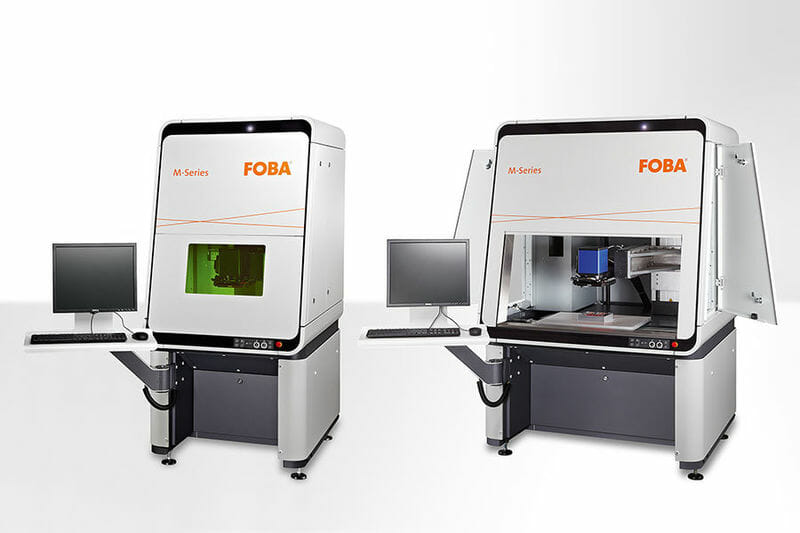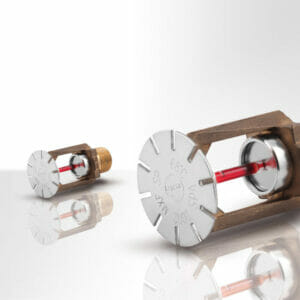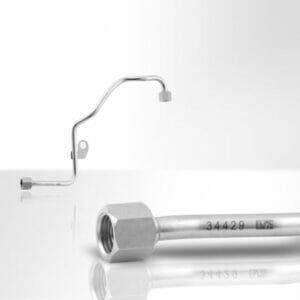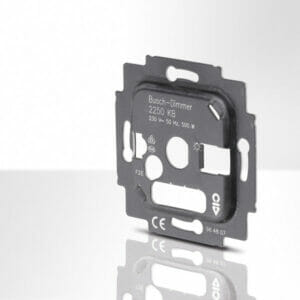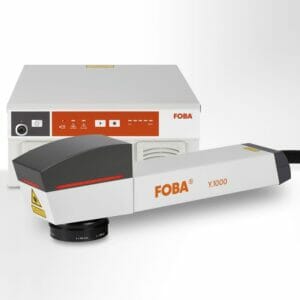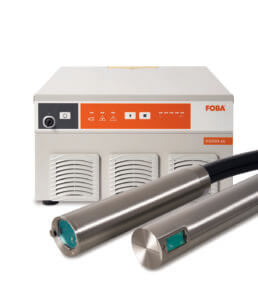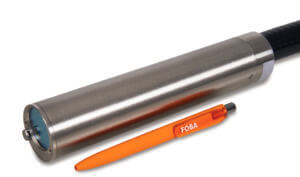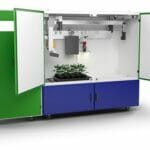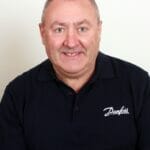Although Laser technology is already firmly established as a reliable and cost effective process for marking metal components, the areas of application continue to expand as the flexibility of the laser is recognised by increasing numbers of component and product manufacturers.
However, each application has its own individual requirements, depending upon the different metal types and the individual size and shape of the part. This means, that whilst the laser process is applicable to all of the different tasks, the configuration of the system may be different ranging from a relatively simple stand-alone flat-bed type system to a system which is part of a fully integrated manufacturing line.
As UK representatives and distributors for some of the world’s leading laser manufacturers, Bromsgrove based TLM Laser is able to offer a wide range of systems and configurations for metal marking. In this article by the company’s Andy Toms, he outlines just a few examples of the different metal marking solutions which they are able to offer to UK manufacturers.
Lasers are capable of marking virtually all metals including stainless steel, high-grade steel, carbon steels, copper, iron, magnesium, aluminium, brass, titanium and of course precious metals. However, as for most manufacturing processes, there is no “one size fits all” solution for laser marking metals.
Lasers mark metals by changing the appearance of the surface and in direct laser marking, the laser energy heats the metal surface causing it to oxidise and therefore darken to produce an indelible mark. For coated metals, such as anodised aluminium, the laser creates the mark by removing this surface layer. The type of metal being marked, and whether it is coated or not will influence the choice of laser source Fiber or CO2. Today, Fiber laser technology is by far the most efficient and effective way to mark metals and as the UK’s partner for FOBA and Universal Laser Systems marking technologies, TLM is able to offer a wide selection of configurations to suit different application requirements.
Andy Toms comments: “Understanding that each customer and every application will require a unique approach means we have built up a comprehensive portfolio of modules, and systems to ensure that we are able to offer the optimum solution every time. Laser marking machines, such as FOBA’s M2000 and 3000 offer stand-alone laser class 1 operation. The ability to configure these machines with a choice of laser powers, rotary tables, axis systems and machine vision options means that the system can be tailored to the exact needs of specific and sophisticated applications.”

(FOBA’s range of stand-alone marking machines offer a flexible approach to metal marking applications)
For applications where the laser needs to be an integral part of a manufacturing system, perhaps where components are being automatically transferred from one station or process to another, FOBA’s powerful Y-Series Fiber Laser’s offer a flexible part marking solution.
This series of lasers are suited to almost all metal processing industries and applications offering precise and efficient direct marking of parts and product. These systems are capable of producing all kinds of codes (QR codes, DMC / DataMatrix Codes, Barcodes), alphanumeric characters, logos and letters that are produced reliably and with high levels of accuracy. The Y-Series includes 9 different fiber laser sources, spanning power and pulse width ranges on one modular platform.
Where space is at a premium, the new TitusTM range, which offers 20 W and 30 W fiber laser markers, are not only incredibly small, but offer incredibly simple integration, opening up new areas of application for fast direct part marking on metals and other materials. The Titus™ Vector Scan laser marking head is just over 20 centimeters in length and weighs in at just 630 grams.
With its small format and tubular shape, the marking head is easily mounted with a simple clamping bracket and is available with an optional supply line of up to ten meters in length. Its flexibility is further enhanced through the option of either a straight or 90 degrees exit angle for the laser beam, together with the ability to adjust the marking field size to the specific application requirements.
For applications which are predominately 2D and on flat steel components, the Universal Laser flat-bed systems offer a production level, yet competitively priced solution. Also available with range of laser power levels and sources (Fiber and CO2,) these systems are equally at home within a production environment, prototyping or research and development lab.
 Universal Laser Systems patented Rapid Reconfiguration™ technology allows users to switch laser sources to match their changing requirements, without the need for tools or any specialist training. Depending upon platform model, there are options on laser wavelength (CO2 10.6μm, CO2 9.3μm, or fiber 1.06μm), in addition to a choice of laser power from 10W to 500W – when combining dual 250W laser sources. There is also the capability in certain platforms for dual or multiple laser sources. At its core, Rapid Reconfiguration™ allows users to very easily install and reinstall any ULS laser source onto any ULS laser system. Because certain wavelengths and peak power levels are ideal for certain materials and applications, this feature allows for unprecedented flexibility in laser processing.
Universal Laser Systems patented Rapid Reconfiguration™ technology allows users to switch laser sources to match their changing requirements, without the need for tools or any specialist training. Depending upon platform model, there are options on laser wavelength (CO2 10.6μm, CO2 9.3μm, or fiber 1.06μm), in addition to a choice of laser power from 10W to 500W – when combining dual 250W laser sources. There is also the capability in certain platforms for dual or multiple laser sources. At its core, Rapid Reconfiguration™ allows users to very easily install and reinstall any ULS laser source onto any ULS laser system. Because certain wavelengths and peak power levels are ideal for certain materials and applications, this feature allows for unprecedented flexibility in laser processing.
Andy Toms sums up: “With the diversity of industry sectors, applications and metals being used today, it is essential that potential users of laser technology are able to consider all options available to them. We believe that we can offer a tailored solution to just about any metal marking application from our comprehensive range of technologies.”
The different laser marking technologies described within this article are available from Bromsgrove based TLM Laser, and just part of the comprehensive range of laser based technologies and systems offered by the company.
For further information, please contact:
Tel: +44(0) 01527 959 099
E-Mail: sales@tlm-laser.com
Web: www.tlm-laser.com

